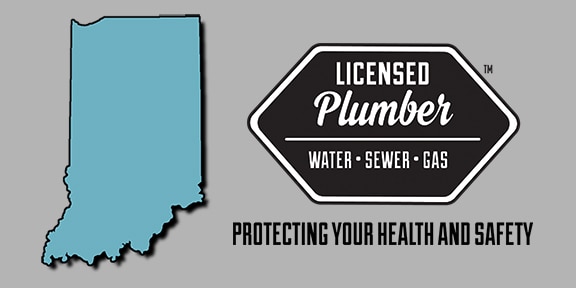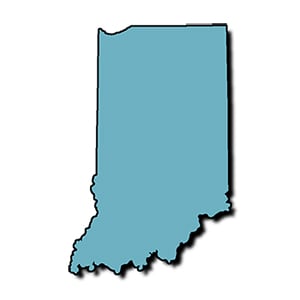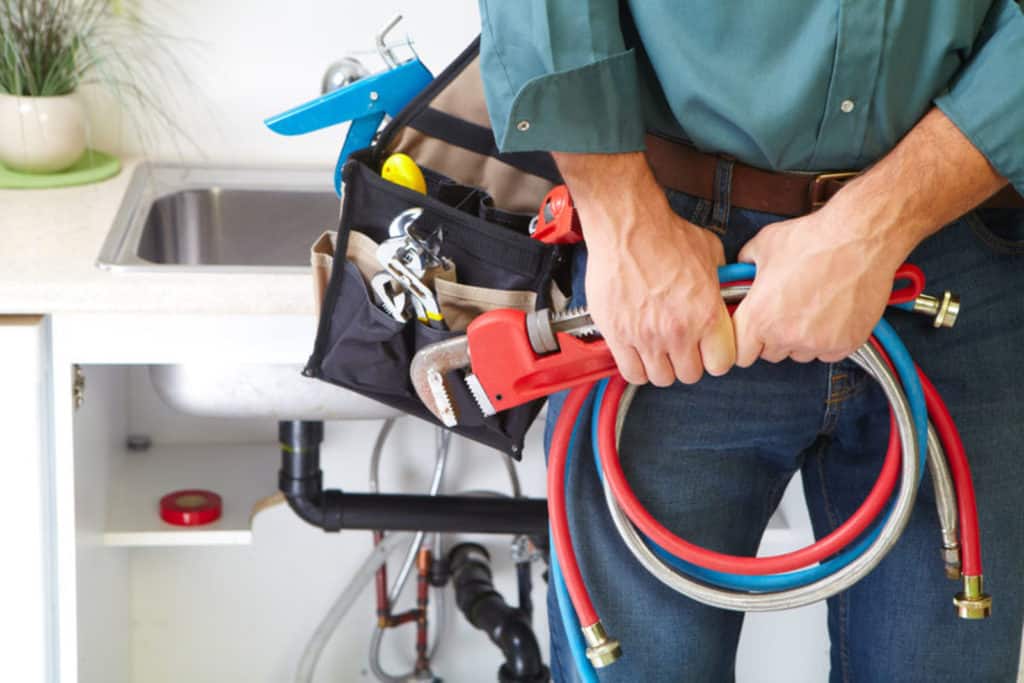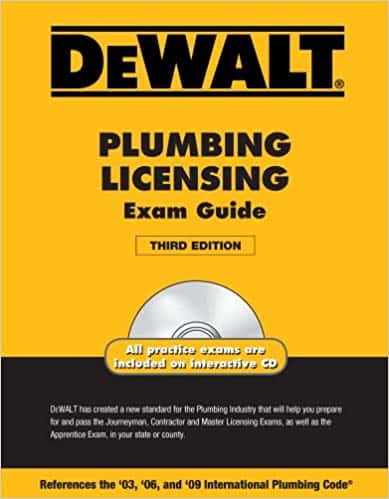Table of Contents

At this point in the 21st century, acquiring a trade skill such as plumbing provides a lucrative career path, considering how these fields are gaining more recognition. However, learning trade skills isn’t as simple as taking the four-year route to university, since each state has different regulations and requirements for licensing qualifications. Learn how to become a licensed plumber in Indiana below.
Why Licensing is Important
Licensing is crucial, no matter what state you want to work in, and it’s provided by either a state or district-based authority. Having a license means accessing various job opportunities in your state, which includes large-scale projects like designing plumbing layouts. Performing plumbing work without a proper license is an offense under section 221D, sub-section 1 of the Building Act 1993.
Getting licensed from your state-based authority is a beneficial turning point for a plumber’s career. It promotes learning about the specific plumbing problems that are common in a state, and how to address them with advanced methods.
State vs. District-Based Agency Licensing
In some states, getting a state license is enough for a contractor to complete projects all over the state. On the other hand, bigger states with diversified cities and districts will require a plumbing contractor to get a district license.

This will limit them to working in a particular district, but since these areas will be very large, such as those in the state of New York, contractors get plenty of work opportunities.
Getting a Plumbing License in Indiana
In Indiana, licensing requirements for master and journeyman plumbers are established at the state level and separate municipalities in the state are tasked to enforce these requirements. In addition, the Plumbing Commission has tasked the International Code Council with holding plumbing exams for contractors and journeyman plumbers.
Requirements for Working as a Licensed Plumber in Indiana
Based on whether you want a journeyman or contractor license, the requirements are different. For instance, getting certified as an apprentice doesn’t require one to take any exams, all they need is to submit a complete registration form and pay the application fee. An Apprenticeship is one of the first steps on become a licensed plumber in Indiana.

Journeyman Plumbing License
People applying for a journeyman plumber license need to complete a minimum of 4 years of training as an apprentice. Their apprenticeship should comprise at least 6,400 hours of work experience as a plumber, which includes hands-on, practical tasks.
Most importantly, applicants have to pass the written exam that’s regulated by the ICC. They have to pay an application fee of $25 for the journeyman plumbing exam.
If the candidate passes the exam, they’ll need to pay a licensing fee of either $15 or $30, based on whether they apply for it in an even or odd-numbered year.
Plumbing Contractor License
To apply for a plumbing contractor license, applicants should first complete a four-year period of apprenticeship training. Just like for the journeyman license requirements, applicants should have completed 6,400 hours of practical, hands-on plumbing work.
The plumbing contractor exam is much more advanced – applicants have to pass this exam by the ICC, which covers sewage and drainage systems. It also gets you one step closer on how to become a licensed plumber in Indiana.
Applicants for the Indiana Plumbing Contractor exam have to pay a $50 fee. Candidates who pass the exam get licensed, for which they have to pay a fee of $50 or $100. How much you pay for the license depends on whether you’re getting it an even or odd-numbered year.
‘How Do I Get an Apprenticeship?’
One of the first steps, as listed before on hot to become a licensed plumber in Indiana is to get an apprenticeship. You first need to obtain a high school diploma i.e. graduate from high school or its equivalent, get a GED. Plumbers need to have a strong foundation for subjects like geometry, algebra, physics, and computer-aided drafting.

Once you get your high school diploma, you should enroll in a trade school to complete vocational training. This allows you to build on certain basics like piping equipment, drainage systems, and water supply.
After a short vocational course, you can take part in a 4-year apprenticeship program that provides the opportunity to build hands-on experience. In an apprenticeship, you’ll be learning about all aspects of the plumbing trade.
Applying for a License
If you want to apply for an Indiana plumbing license, you have to fill in an application form first. These are available at the official address of the Indiana Professional Licensing Agency, which is part of the Indiana Plumbing Commission. You can also choose to download the form from the IPLA website.
You can find the form at the official address:
Indiana Professional Licensing Agency
Attn: Indiana Plumbing Commission
402 W. Washington Street, Room W072,
Indianapolis, IN 46204
Or, you can download it from here.
Filling the Application Form
The form is straightforward but will need information regarding any disciplinary issues, medical conditions, and other details pertaining to your personal background. Section 1 requires the applicant’s general information, which has to be filled by all applicants, regardless of whether they are from Indiana or out-of-state.

The next part of Section 1 needs personal background information. If in any question, you answer yes to have committed a misdemeanor of any sort, you will have to explain it in a signed statement, while attaching it to the application. You should include details like the date, location, and violation.
Section 2 only needs to be filled out by Indiana residents, while section 3 is for licensed plumbers based in Indiana or out-of-state. Section 2 will require that your apprenticeship program sponsor certifies that you’ve completed 4 years of apprenticeship. Section 3 will require an employer’s affidavit of the applicant’s experience in the trade and a notary certificate.
The last section, Section 4, asks for information regarding the applicant’s experience in the plumbing business. In this part, you’ll have to give information about the business you worked for a while under the supervision of a licensed plumbing contractor.
You can include the information of up to two licensed plumbing contractors, their respective addresses, and the dates from which you were employed under their direction.
Make sure to tape a photograph with your application and sign it from the front.
The Indiana Licensing Exam
The Plumbing License Exam in Indiana covers crucial topics such as drainage systems, fixtures, administrative procedures, and venting. Regardless of whether you live in South Bend, Gary, or Indianapolis, general resources for the state exam are enough to help you get started. One way to best prepare for how to become a licensed plumber in Indiana is to check out the DeWalt Plumbing Licensing exam guide.
Both the journeyman and plumbing contractor exam comprises 90 multiple choice-style questions. You’ll have a 3-hour time limit to answer all the questions. Questions will not be divided equally amongst all topics. For instance, you’ll have to answer 7 questions about ‘General Requirements’, whereas 21 questions will be from the topic of ‘Sanitary Drainage’.
You’ll be asked questions about other basic topics as well, such as water heaters, water supply distribution, and fixtures. However, the exam also tests your knowledge about state regulations and running your own plumbing business. Hence, topics like Indiana Business and Law, and Developed Length/Isometric Analysis.
Finding a Job after Getting a License
Once you get your plumbing contractor license, there are different ways to go about pursuing your career.
Contact Apprenticeship Plumbing Business
Most licensed plumbers, after getting their license, contact the plumbing company where they completed their apprenticeship. This is a no-brainer for many professionals because they already have experience of working at the company, which is helpful in the long run.

Start with a New Plumbing Company
Meanwhile, others would rather like to start working with an entirely new company to experience a different working environment and practice with new people. This route offers its own benefits. For example, you learn the inner workings of a plumbing business much better after having given the licensing exam. This can prove helpful in the future when you’ll want to start your own plumbing business.
Start Your Own Company or Work as a Solo Contractor
On the other hand, some licensed plumbing contractors would prefer to start their own plumbing business, which includes employing and training other plumbers.
Lastly, some licensed plumbers would prefer to work alone as a solo contractor instead of starting their own company.
Working in a Different State
Nonetheless, getting your state or district plumbing license doesn’t imply that you can work in any state you’d like. In fact, it doesn’t’ even mean that you can work the entirety of your career with just one license.
Getting a plumbing contractor license from Indiana means you can only practice in Indiana. For projects that fall out-of-state, it may be possible to get a temporary permit. Similarly, plumbing contractors will have to get their licenses renewed every year to keep practicing. This is helpful because you get a chance to gain more knowledge about the field.
Advocate for Licensing
PHCEid.org is an advocate for the Plumbing, Heating, Cooling, and Electrical contractor to properly identify their licensed status for public awareness. Professional Contractors have the license or certification to work in homes and businesses. Without the proper certification and licensing to become a skilled trades professional, it compromises the integrity of the trade industry.
The contractors listed on the PHCEid.org website are licensed or certified according to the codes and laws set forth by each governing state and/or entity. You can also read more about the top 10 licensed plumbers in Indianapolis.
Licensed Contractors work in compliance with local and state codes set forth by their governing trade industry board. Get more information at PHCEid.org or call 844-954-2367 today!

